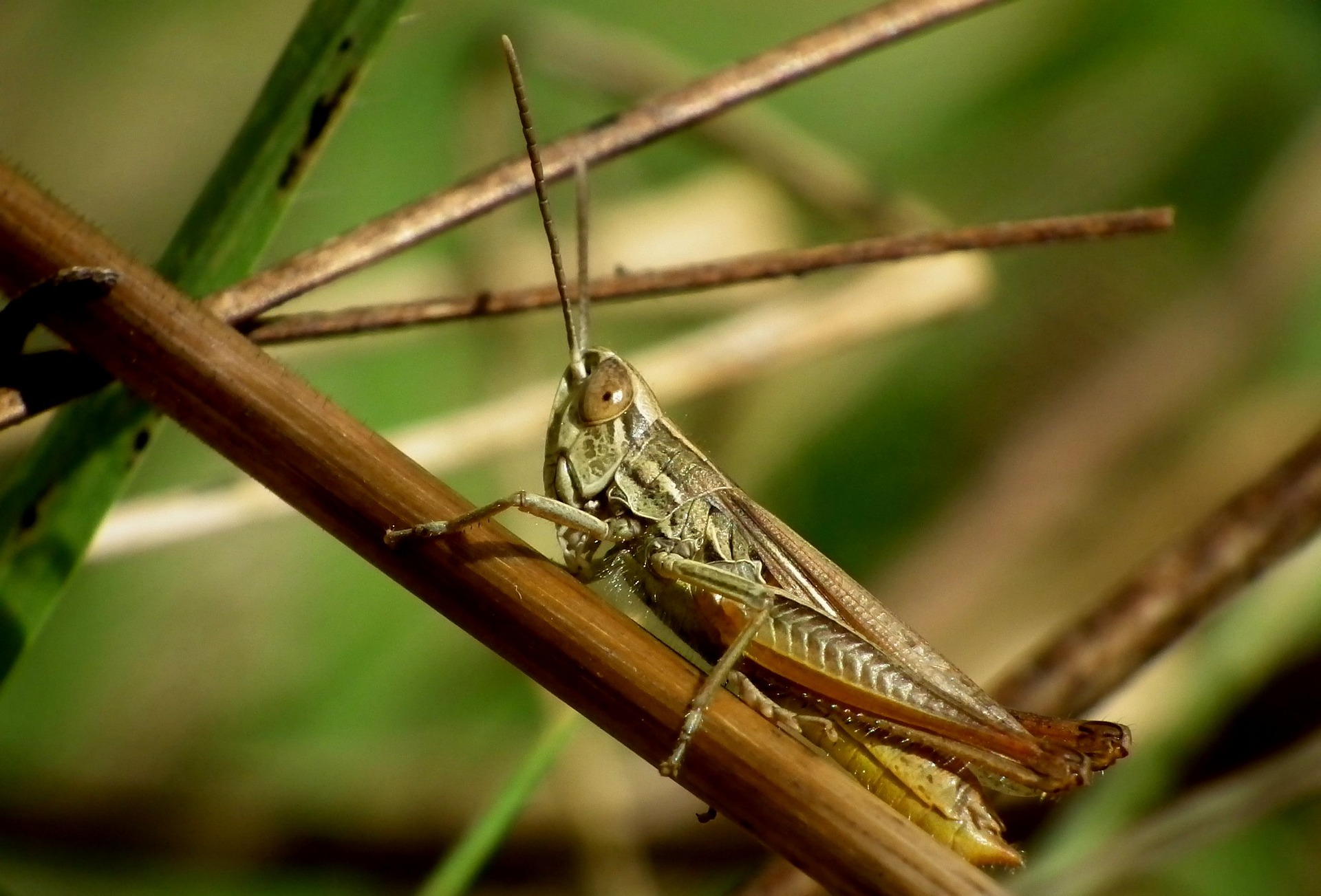Swarms of desert locusts are causing havoc in Africa and Asia. TU Delft students are working on a control method. They want to unleash viruses on the voracious insects.
A tsunami of desert locusts of almost biblical proportions is flooding the Horn of Africa, the Arab Peninsula and the West of Asia. (Photo: 850977 / Pixabay)
Cut a bagel in half. Spread a thick layer of hummus and harissa on top. Add avocado and grilled sweet pepper. And top it all off with locusts, fresh coriander and black pepper.
Or, also nice, the mezcal twist (18+). Cut a lime into eight wedges, pour tequila into a shot glass, add a grasshopper, lick salt from your hand, drink the shot, eat the grasshopper and bite the lime.
Welcome to the Delft iGEM team’s grasshopper cooking show, soon to be seen on YouTube. It is not just hard science that drives this team. For iGEM (International Genetically Engineered Machine Competition), the annual international student competition for tinkering with DNA, the students also have to make sure their message lands properly. And this can partly be done in a playful way.
A tsunami of desert locusts of almost biblical proportions is flooding the Horn of Africa, the Arab Peninsula and the West of Asia. And that for the second consecutive year. The insects eat everything, leaving vegetation bare. It is a disaster for the people there. The animals must be stopped, say the students, if necessary by cooking them or putting them in cocktails. But even better, of course, by using synthetic biology tricks. With the magic box of synthetic biology, 11 Life Science & Technology, Bionanoscience and Mechanical Engineering master students have been working on a solution for four months now.
Tinkering with DNA
The iGEM competition, organised by the Massachusetts Institute of Technology, serves as a platform for further broadening knowledge of synthetic biology. Student teams are challenged to dedicate their summer to a self-conceived project. They often tinker with the DNA of bacteria so that they can be used to solve social problems. For example, a few years ago TU Delft students made a bacteria that detects landmines by discolouring in the the vicinity of a landmine.
The TU Delft students who are taking part this year have raised the bar even further. They focus on even tinier microorganisms. They want to make a biopesticide by genetically modifying bacteriophages. That is a virus that only infects a specific bacterium.
‘We turn bacteria into factories for a toxic substance’
“The idea is to apply this biopesticide (which consists of viruses, ed. ) on plants,” says team leader Nick Bowring. “If the grasshopper eats it, the viruses end up in the insect’s intestines. They then bind to bacteria. They inject their genetic material into the bacteria, after which these hosts then produce proteins. If we genetically modify the viruses so that they carry a gene that codes for a toxic protein, we can turn the bacteria into a kind of factories for that toxic substance. The substance we have in mind is a so-called crystal protein that perforates the intestinal wall of the locust, killing the insect.”
The research should be complete by the end of October. Bowring says: “By that time we hope to at least be able to show a proof of concept. We have divided the development of this biopesticide into sub-projects. We have already demonstrated that it is possible for the bacteria to produce the toxic substance. But in the end, of course, it has to be a virus that carries the DNA and injects it into the bacterium.”
Numerous research groups worldwide are working on biopesticides to fight the desert locust. It turns out to be quite tricky. There is no miracle cure yet. Will the students succeed? They have high expectations. “We are in close contact with researchers from the World Food Programme. If they’re enthusiastic about this approach, maybe there’ll be a follow up.”
Do you have a question or comment about this article?
tomas.vandijk@tudelft.nl


Comments are closed.